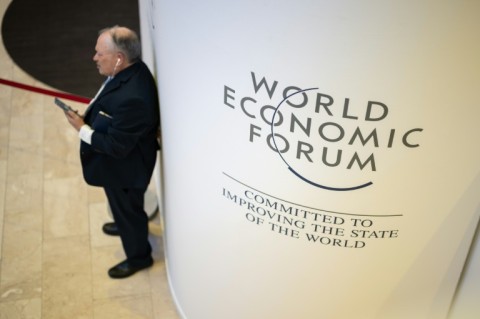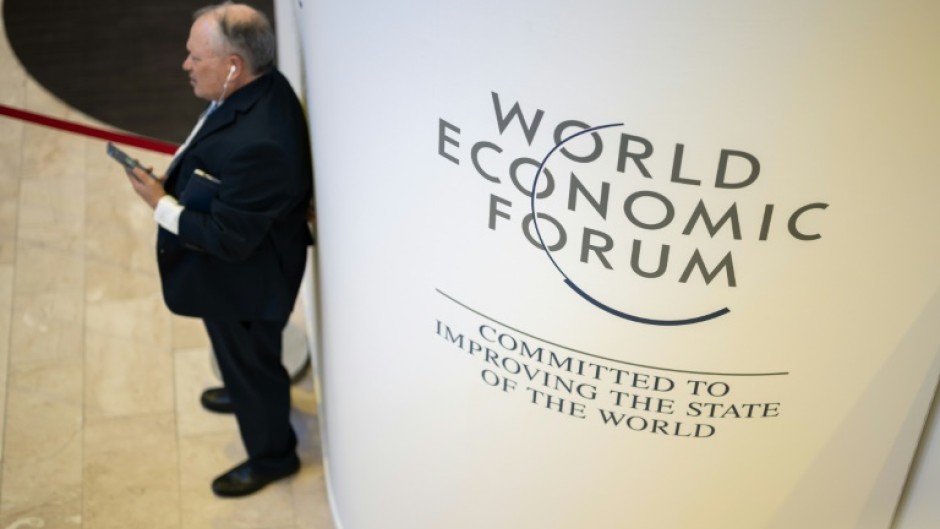
DAVOS - A Swiss Alpine town where heads of state and business titans huddle for a week of debate: the World Economic Forum in Davos is an ideal target for conspiracy theorists pushing the idea of an elite cabal running the world.
Celebrities, billionaire tycoons and world leaders have gathered in Davos to discuss the knottiest issues facing humanity -- from the Ukraine war to climate catastrophes and even the threat of disinformation.
But the annual gathering itself has become a magnet for wild falsehoods such as the WEF wants people to eat bugs instead of meat to fight food insecurity.
What gives oxygen to such farcical theories is what observers call behind-the-scenes deal-making between business leaders, a WEF fixture that fuels the notion that it is led by a shadowy cabal working for private gain under the garb of solving public issues.
"The World Economic Forum is a target of misinformation and disinformation because it occupies a singular space in the public consciousness: a gathering of the world's most powerful and influential economic actors in a forum that showcases and celebrates both," said Michael W. Mosser, executive director of the Global Disinformation Lab at the University of Texas at Austin.
"The WEF's opacity, coupled with its conviction that economic globalization is a net positive for humanity, lends itself to charges that it is out of touch with 'everyday' people," Mosser told AFP.
'Lightning rod'
AFP's factcheckers recently debunked social media posts claiming the WEF issued a statement endorsing pedophilia, which its spokesperson called "completely made-up."
Posts also falsely claimed that the WEF called for "millions of cats and dogs worldwide to be slaughtered" to fight climate change. AFP found no trace of such an initiative.
The wave of misinformation, which observers say was once restricted to a radical fringe, has gained traction online amid stark indications of worsening global inequality.
Since 2020, the fortune of billionaires has surged by $2.7 billion a day even as inflation depleted the wages of at least 1.7 billion workers worldwide, the NGO Oxfam said in a report published on the opening day of the Davos forum.
"Davos is among the most high profile of assemblages in the world, and so it's naturally going to be a lightning rod for anyone with a gripe against the current status quo, whether real, like wealth inequality, or imagined, like vaccines," Danny Rogers, cofounder of the nonprofit Global Disinformation Index, told AFP.
The false narratives "often tap into a variety of pre-existing conspiracies rooted in similar mistrust of government, science, and other democratic institutions."
'Sitting target'
The elitist nature of the forum that many business titans pay tens of thousands of dollars to attend, with some flying in on emissions-spewing private jets, perpetuates that mistrust.
"WEF is a sitting target (of misinformation) -- very expensive to attend, invitation only," Claire Wardle, co-director of the Information Futures Lab at Brown University, told AFP.
"It's playing out the foundation of every conspiracy theory, which is that the world is being controlled by a secret elite and you're not part of it."
That was evident in sarcastic memes including one that depicted a typical meal at Davos -– a person hunched over a bowl full of coins, a large spoon in hand.
Fanning those memes were comments that scoffed at news reports that said prostitution flourished in Davos during the week-long WEF.
Many conspiracy theorists referenced "The Great Reset," the WEF's 2020 Covid-19 theme, which they see as shorthand for the global elite's plot to control the world.
One WEF session on the "clear and present danger of disinformation," which was attended by media including the publisher of the New York Times, itself became the target of conspiracy theorists.
Discussing disinformation, according to one conservative podcast, was meant to take a swipe at the public's right to criticize the agenda of the WEF.
"Like many other high-profile organizations, we've seen baseless statements and conspiracy theories replace reason with fantasy," Yann Zopf, head of media at WEF, said in a statement to AFP.
"With increasing fears about the cost of living -- exacerbated by the pandemic and the energy crisis -- it is now more critical than ever to tackle disinformation head-on."

